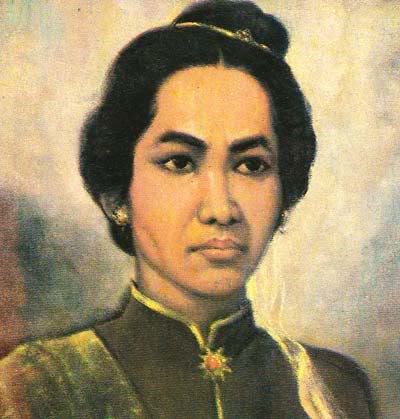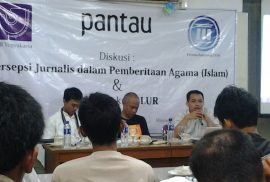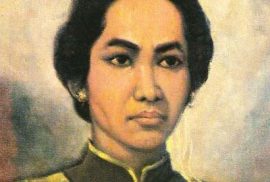Suhadi Cholil | CRCS | Article

Freedom of the press in the era of the Reformation, although much more open than in the New Order, to borrow Endy Bayuni’s phrase, in the field of religious journalism, journalists is still difficult to harness the freedom to support the equal civil rights of citizens. It is seen from the results of a survey conducted Yayasan Pantau (Monitor Institution) relating to the perceptions of Indonesian reporter towards Islam in 2012. A survey of 600 journalists in 16 provinces showed the higher tendency of Indonesian journalists who identify themselves as Muslims rather than as Indonesia. This identification has implications for the strong bias of the journalists while reporting violence to the minority groups. This is evident from the use of words that tend to judge as “misguided”, “should be forsworn”, and others. I think this bias arises because the journalist is difficult to distinguish between the personal religious arenas to the professional position as a journalist. This paper examines further some of the findings, not all of them due to space limitations, from the results of the survey held by Yayasan Pantau (Monitor Institution).
BetweenThe Objectivity and the Religiosity
Humans, including journalists, are multi-dimensional figure and complex. Meanwhile, journalism and religion are two different fields or arenas (Bourdieu 1992). As shown by the Pantau’s survey, Indonesian journalists are generally difficult to distinguish between those two arenas. This is evident from: first, the high percentage of journalists who identify themselves as “religious Muslims” (50.6% in 2009 and 43.3% in 2012). Second, from the answer to the question, “above all, I am …”. A total of 41.5% said Islam, 38% answered Indonesia, and only 11.8% who answered as the reporter. Third, the high number of respondents (66.5%) agreed that the task of journalists, among others, is “to protect the Islamic tradition”. Additionally the strong Islamic identity of respondents is indicated by their proximity (58.7%) in the two mainstream Islamic organizations in Indonesia, NU (42.1%) and Muhammadiyah (16.6%).
The situation that may be very difficult resulting in mixing the arena or the domination of religious arena over journalism arena is seen from: first, the high support for journalists to Law No.1/PNPS/1965 on prevention, abuse, and defamation of religion (76.5%). Second, there is a high support for the Joint Decree (Surat Keputusan Bersama -SKB) on Ahmadiyah (56%). Third, there is a high support for the fatwa MUI 2005 on the banning of Ahmadiyah (59%).
Pantau in its report mentioned in the introduction that this situation affects journalists in performing their duties, in other words “lack of professionalism” of the journalists in covering religious cases. We now then need to consider whether this situation can be resolved by strengthening the knowledge sector or not, because it is quite ideological. I for myself tend to look at the root of the problem and it is the mixing arena, so that the situation can be resolved by considering the following points.
Religion in the Realm of Civic
From the affiliates of the media, in general the journalists in Pantau’s surveys are the public media and not a religious community media, so it is important to consider the civic perspective (read: civic pluralism). In this perspective, members of religious communities are seen as citizens of a democratic country equal in rights and obligations, so that the diversity of value systems need to be recognized by communities and the state, and must be maintained so not to be standardized or reduced (Bagir, et al. 2011). As a form of recognition, the space for citizens to express themselves must be respected and protected.
Perspective of civic pluralism does not require the separation of religion and the state because it is seen as unrealistic both in Indonesia and in many secular countries though. However, the state also should not be taken over by the religious authority to determine what is considered the best for a religious community. The role of the state is to maintain public space to stay safe, free from intimidation, and not dominated by a particular group. In a public space that is safe, deliberation among diverse groups of people can do very well, and be a means of democratic participation. Therefore, civic competence, which is required for participation, must also be developed (Bagir, et al. 2011). The question then is: does Indonesian press world really dare to take this position in covering the religious event? If we see the survey of Pantau, the answer is no. This is evident from the high approval of the journalists towards the application of Islamic law (45.3%).
Although in terms of cognitive development of the survey questions about Islamic law still leaves the problem, which could be a different perception of Islamic law between constituent surveys and respondents, the findings of this section can be a gateway to talk about civic values so that the dominance of a particular religious views in the public sphere can be minimized. Hence, strengthening the knowledge sector for journalists in this field is important.
Looking at the Press Company As Well
I notice there is one important element ignored in the Monitor survey, i.e. the Press Company behind the journalist, so some of the questions in the survey should not only be aimed at the journalists but also on the Press Company. In reporting sensitive religious issues there is a trend most of the Press Company avoids from the pressure of religious authority. Thus, when journalists reported accurately with the principle of objectivity and equality of religious communities, not necessarily what they wrote was approved by the company press. Often if there is difference between the views of journalists with Press Company, there must be the Press Company being the winner, the decision maker. Therefore, can journalists act independently in producing the “truth” (Kovach and Rosenstiel 2012) dealing with the press conglomerate company?
Although in some points which is significant enough, this survey still needs to be scrutinized but this research needs to be appreciated as well. Research conducted by the press agency for the world’s press has an important position regarding the present situation of journalist’s literacy in religious issues. Thus empowering journalists should base on the results of empirical research such as this one. The complexity of religious literacy issues is expected to strengthen the Indonesian press, especially in developing inter-religious discourse relations that are not discriminatory, upholding civic values and the freedom of religion without getting caught by the phobia against religious identity in the public sphere [njm].
Articles
Mustaghfiroh Rahayu | CRCS |

Jacqueline Aquino Siapno, in an article entitled “Sharia Moral Policing and The Politics of Consent in Aceh”, wrote that Acehnese women are no longer as were described by most of the international reports on Acehnese women whose rights are violated by the application of Islamic sharia. Her experiences during the research show the opposite, that Acehnese women are independent, have high mobility and higher bargaining power over men (matrifocality). Therefore, she offers a different perspective in looking at Acehnese women. This paper is a review on Siapno’s article published in the Journal of Social Difference-Online Vol. 1 Dec. 2011.
Zainal Abidin Bagir | CRCS
That Irshad Manji was denied permission to set foot for the second time on the grounds of Gadjah Mada University (May 9, 2012) must make us, especially those of us in academia, think again. There is no need to hide the fact that the cancellation of this event was precipitated by threats from some mass organizations, although it is not always clear exactly who they are.
Doesn’t this make us think about the future of the academic environment here at Gadjah Mada University? What if at some point there are similar objections from two, three or even thirty mass organizations about other issues that people don’t agree on? For example, what if the topic is the possibility of resolving the conflict in Papua? Or a seminar on the causes of the disastrous Lapindo mudslide in Sidoarjo? Or combating corruption and the role of the Anti-Corruption Committee? Or other such issues?
Arqom Kuswandono | CRCS | Article

Pancasila is the state ideology of the Republic of Indonesia. Since the fall of the new order regime in 1998 this ideology has been banished from public discourse due to its attached stigma as an indoctrination tool of the authoritarian reign. Since roughly 2005 the discourse on Pancasila has re-emerged not only in the goverment level but also in the grass root sphere. Many Indonesians still consider Pancasila to be the best ideology for the diverse nature of Indonesia as violence based on religion has increased since its disappearance.
Problems related to the Ahmadiyah community in Indonesia has recently taken center stage, with the violence toward the community in Cikeusik, Banten, on early February 2011. Responding to the issue, several governmental ministries (Ministry of Religious Affairs, Ministry of Home Affairs, Supreme Court) held a series of discussions, end of March 2011, which was expected to help the government to make a new, “permanent decision” on Jemaah Ahmadiyah Indonesia. CRCS was invited to present considerations on the issue. Based on the ongoing research that has been presented in the previous /Annual Reports on Religious Life in Indonesia/, Zainal Abidin Bagir, representing CRCS, presented an analysis of the issue and suggested some recommendations. Although the government was expected to announce its decision early April, it has not done so until now. The following is a revision of a presentation prepared by the Center for Religious and Cross-cultural Studies (CRCS), Gadjah Mada University, for the “Discussion and Advisory” meeting regarding the Ahmadiyah issue held at the Ministry of Religion, Jakarta, on March 22, 2011.”
Gde Dwitya Arief | CRCS, Batch | Article
This article analyses the event in which our Communication minister Tifatul Sembiring greeted first lady Michelle Obama in Jakarta. As a conservative Muslim, Tifatul has made a big point of declaring he will not touch any member of the opposite sex who is neither his wife nor part of his family. However, when the US first lady, Michelle Obama, warmly extended her hand to greet him at a state function in Jakarta last week, he responded eagerly by reaching out and taking her hand. Sharp-tongued Indonesian Facebookers and tweeters criticized him as being hypocritical.



